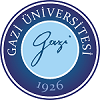
Send us your opinions, requests and evaluations.
To apply the knowledge and skills acquired by completing the pharmacy undergraduate program in all areas of the pharmacy profession within the framework of relevant laws, regulations, legislation, professional fundamental values and ethical rules,
Learning the basic concepts about diseases affecting human health and their treatments,
Having sufficient knowledge to make and evaluate physical, chemical, toxicological, biological, microscopic, microbiological, molecular and elemental analyzes, related to herbal medicine, crude drugs, environmental and biological materials, food, food additives and contaminants, drugs, drug active and auxiliary substances and medical products, using scientific resources, pharmacopoeias and validated methods,
Recognition of drug targets, knowledge and application skills in the chemical structure, synthesis and analysis, effects, structure-effect relationships, design, development, toxicological, pharmacokinetic, pharmacodynamic properties and side effects with therapeutic dose determination, of pharmaceutical active ingredients.
Having sufficient knowledge of the preparation of magistral drugs, the use and legislation of all original or generic preparations and medicinal products,
Having knowledge about the effects of drugs on biochemical parameters, drug-drug, food-drug, disease-drug interactions, monitoring and prevention of adverse drug reactions and pharmacovigilance,
Having knowledge and application skills in pharmaceuticals, phytopharmaceuticals, biopharmaceuticals, pharmaceutical care, pharmacotherapy, cosmetology and clinical pharmacy,
Knows the effects of drugs and other chemical substances, biological and physical factors on biological systems and the environment and the toxicological risk assessment process. Having knowledge about protection from toxic effects and treatment approaches,
To be competent in the presentation and description of the drugs prescribed to the patient within the framework of rational drug use, the evaluation of clinical laboratory results, food support, products such as nutraceuticals, and practical useful information about health and diseases,
To be able to communicate effectively with other professional groups and institutions such as legal health authorities, the pharmaceutical industry, professional organizations, etc., and to have the knowledge and equipment to provide suggestions and solutions to problems related to the field,
Using the concepts and applications of basic science, medicine and health sciences in the field of pharmacy by combining them with applications related to the pharmacy profession,
Raising professionals who follow national / international historical and current developments in the field of pharmacy using technological tools, databases and information resources, who can evaluate scientific and evidence-based data, and adopt lifelong learning,
Having adequate knowledge of a foreign language to communicate with patients and colleagues in the practice of pharmacy,
To have knowledge about health policies and health economics, medicine, medical devices, reimbursement and pharmacy management to increase the health level and quality of life of the society.

Send us your opinions, requests and evaluations.